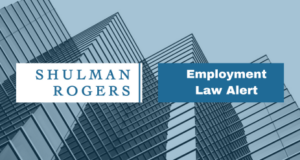
On May 9, 2023, the U.S. Department of Labor (“DOL”) secured a $22 million dollar award against a Pennsylvania employer in connection with claims brought by approximately 7,500 workers for unpaid time spent on pre-and post-shift activities.
The FLSA is governed by the Portal-to-Portal Act amendments (“PPA”), codified at 29 U.S.C. § 254(a)(2). Under the PPA, employers are generally not obligated to compensate employees for time spent on activities that occur before or after their principal job duties, except for tasks that are deemed “integral and indispensable” to those principal activities. The interpretation of what constitutes “integral and indispensable” has been a subject of dispute, leading to litigation in recent years over activities such as bag checks, security screenings, transportation from parking lots to job sites, and COVID-19 health screenings, among others.
In 2018, the DOL filed a lawsuit against East Penn Manufacturing, a lead battery manufacturer, alleging that the company had failed to pay wages for various activities performed by non-exempt employees. These activities included changing into uniforms, putting on and removing personal protective equipment, and showering after shifts. The DOL argued that these activities were indeed integral and indispensable to the employees’ battery manufacturing work, which involved exposure to toxic materials like lead, cadmium, arsenic, sulfuric acid, and ammonia. East Penn countered by asserting that these measures were general safety precautions commonly taken by employees in various industries and settings and were not inherent to the employees’ work.
Pretty early in the dispute, the judge ruled in favor of the DOL and determined that the activities in question were compensable as a matter of law. It was undisputed that the employees had not been paid for these activities. Subsequently, during the trial, the jury was responsible for assessing East Penn’s defenses, including the argument that the time spent on these activities was de minimis (i.e. trivial). Furthermore, if liability was found, the jury had to determine whether the violations were willful and decide on the damages to be awarded. After a 30-day trial, the jury returned a groundbreaking verdict of $22 million in favor of the workers. This decision could result in a significant increase in back wage liability for companies as well as increased personnel costs for employers.
This case serves as a stark reminder to employers that compliance with wage and hours laws can be tricky. If you have any questions regarding this alert or whether certain employee activities could be construed as “integral and indispensable” under the Portal-to-Portal Act, we encourage you to reach out to the Shulman Rogers Employment and Labor Law Group.
The contents of this Alert are for informational purposes only and do not constitute legal advice. If you have any questions about this Alert, please contact the Shulman Rogers attorney with whom you regularly work or a member of the Shulman Rogers Employment and Labor Law Group.
To receive Employment Law Alerts and other timely news and information from Shulman Rogers, please click HERE to subscribe.
Stay up to date with all the latest news and events.